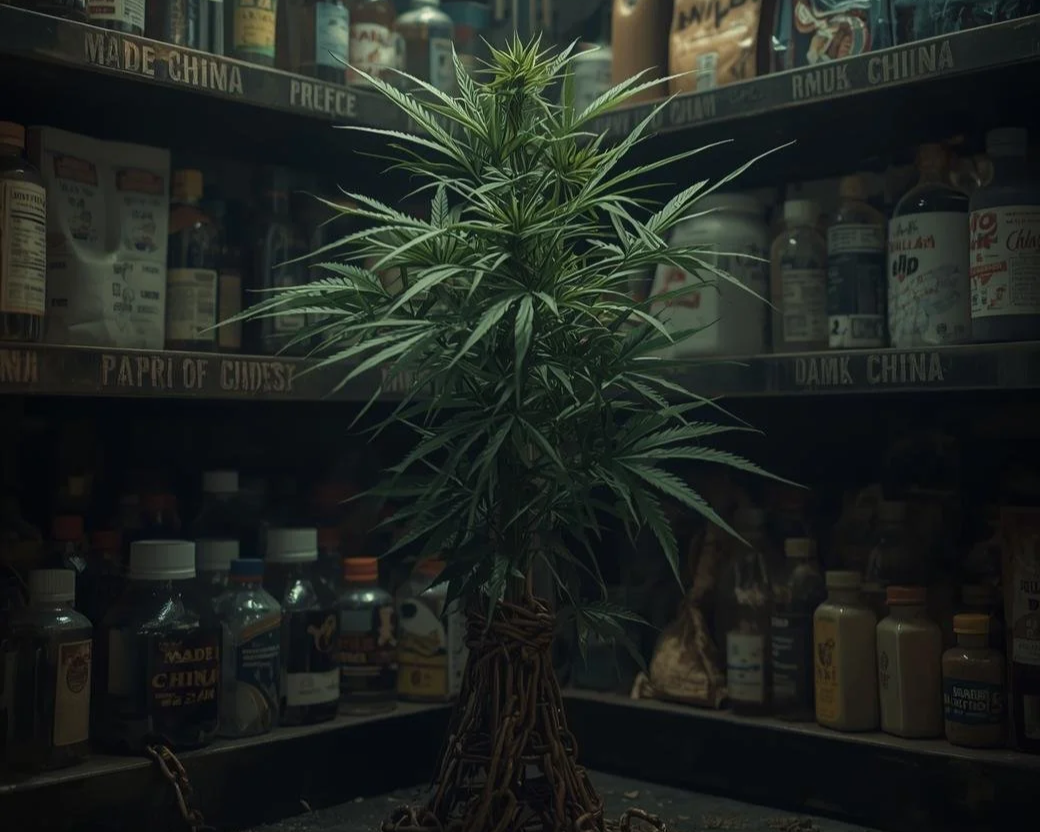The Trade Trap: How WTO and NAFTA Cemented Petrochemical Dominance
If Nixon’s EPA and OSHA in the 1970s were the passport that let corporations ship toxic factories abroad, then the trade deals of the 1980s and 1990s were the free pass. NAFTA and the World Trade Organization (WTO) didn’t just open borders, they locked in a system where U.S. petrochemical equipment, production, and profits could flow globally while alternatives like hemp and bamboo stayed criminalized.
This wasn’t “free trade.” It was petro protection, written into law.
Act I: Reagan’s Deregulated Runway (1980s)
The 1980s set the stage for global petrochemical dominance:
Financial Deregulation: Reagan deregulated banking and finance, making it easy for corporations to move capital abroad. Offshore factories became a safe bet.
Manufacturing Flight: By 1983, the U.S. had lost 1.3 million manufacturing jobs, especially in textiles and chemicals (Bureau of Labor Statistics).
Imports Rise: Imports of textiles, plastics, and electronics from Asia doubled between 1980 and 1990 (Brookings).
👉 While American farmers still couldn’t grow hemp, plastic imports surged.
Act II: NAFTA’s False Promise (1993)
The North American Free Trade Agreement (NAFTA) was signed in 1993 and came into effect in 1994. Politicians promised jobs and prosperity. The reality was devastating:
Job Loss: The U.S. lost nearly 700,000 jobs due to NAFTA trade deficits by 2010, concentrated in manufacturing sectors like textiles, apparel, and chemicals (Economic Policy Institute).
Petro Flood: NAFTA reduced tariffs on petrochemical products, plastics, and synthetic textiles, ensuring they could flow freely across borders.
Mexico as Buffer: U.S. firms used NAFTA to relocate production into maquiladoras along the Mexican border — low-wage, weak-regulation zones where petro-based consumer goods were churned out for re-import.
The winners weren’t Mexican farmers or American workers. The winners were petrochemical monopolies.
Act III: WTO Makes It Global (1995)
If NAFTA was the North American play, the World Trade Organization (WTO) was the global expansion pack. Established in 1995, the WTO had the power to strike down national laws if they interfered with trade — including environmental and labor protections.
Trade vs. Environment: In case after case, WTO panels ruled that environmental protections were “barriers to trade.” Examples include:
US–Gasoline Case (1996): EPA rules on clean gasoline standards were struck down as discriminatory against imports (WTO Case Summary).
Shrimp–Turtle Case (1998): U.S. law requiring turtle-safe shrimp nets was challenged as a trade barrier (WTO Case Archive).
Petrochemical Pipeline: WTO rules ensured plastics, fertilizers, and petro-derived textiles could move globally with minimal resistance.
Alternative Crops Shut Out: Meanwhile, crops like hemp and bamboo — which could have been traded under these same frameworks — were still illegal to cultivate domestically in the U.S.
👉 WTO didn’t create a “level playing field.” It created a global monopoly pipeline for petrochemicals.
Act IV: The Receipts
Here’s what the data says:
Job Collapse: Between 1998 and 2010, the U.S. lost 3.4 million jobs to growing trade deficits with China after WTO accession (Economic Policy Institute).
Textile Imports: From 1990–2000, U.S. textile imports grew by more than 400%, while domestic employment cratered (USITC Reports).
Petro Plastics: Global plastic production exploded from 50 million tons in 1976 to over 200 million tons by 2002 (PlasticsEurope). Much of that growth came from offshore plants first seeded by U.S. equipment.
Act V: The Trap Snaps Shut
By the end of the 1990s:
U.S. manufacturing towns were gutted.
Consumers were hooked on cheap petro imports.
Hemp and bamboo were still handcuffed by outdated narcotics laws and USDA neglect.
Politicians called it globalization. In reality, it was the petrochemical empire writing the rules of the game.
Consumer Takeaway
Those “low prices” in the 90s weren’t bargains. They were the receipts of:
American factories shuttered.
Foreign workers exploited.
Natural alternatives locked out.
👉 NAFTA and WTO didn’t bring free trade. They cemented petrochemical protection.
Read the full story in the book.
Evolution Mine: The Industrial Evolution—the blueprint for breaking the petrochemical playbook and building a regenerative economy.
👉 Buy on Amazon





